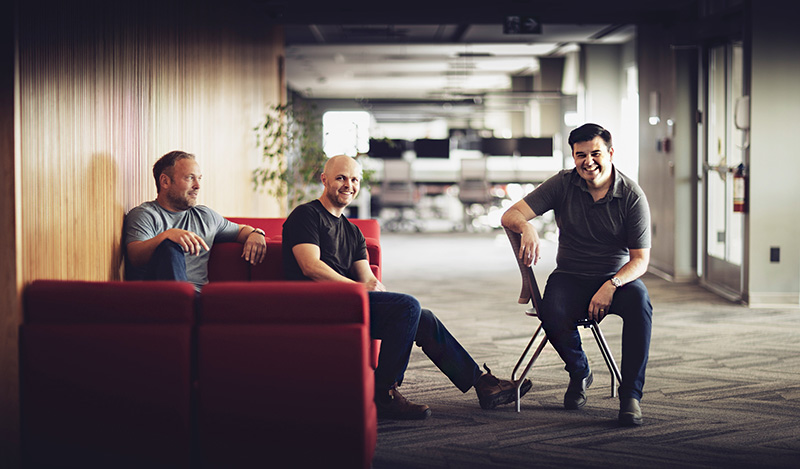Account Login
Don't have an account? Create One

You know the one. “Nasdaq Buying Newfoundland Online Security Company in $2.75 Billion U.S. Deal,” trumpeted the headline above a CBC.ca news story on November 19, 2020. (Yes, Virginia we are talking billion with a capital B, and the dollars are very much American.)
“Largest Ever Canadian Venture Deal,” chimed in the Globe and Mail.
“Verafin Sets Sights on Global Expansion,” added the Financial Post.
Yes, you probably do know that story.
Nasdaq is both the world’s premier venue for buying and selling stocks and also a rapidly growing company in its own right, peddling advanced technologies to banks, brokers and other stock markets across the globe. One year ago, it bought up Verafin, a fraud detection and anti-money-laundering software creator based in global financial-world Nowhere, Newfoundland. The news was huge for Verafin, for Newfoundland and Labrador, for technology companies all over Canada.
That story.
Well, this… isn’t that story. Not exactly. Call this the Verafin story before there was a Verafin, or even a story at all—with a few after-the-champagne-pop lessons for businesses, investors and policy makers for good measure.
This story begins with Joey Smallwood…
Not exactly with Smallwood himself, but close enough.
Let’s start in 1965 with David Kelly, then a fresh-faced young man from Quebec. His father ran a Montreal-based engineering firm that had just won a contract to build a transmission line across Newfoundland. Young David, a student at Montreal’s Loyola College, snagged a summer job working with a subcontractor at a construction camp outside Grand Falls.
David found Newfoundland “exhilarating.” So apparently did his father who soon announced plans to move the family to St. John’s for good. Eighteen-year-old David had a choice: he could return to Montreal for school or join the family in Newfoundland “and try something significantly different.” David chose the something different, which turned out to be Memorial University of Newfoundland.
That’s where Joey Smallwood enters the frame. Coincidentally, the legendary Newfoundland premier had just announced his latest scheme to drag his island province, kicking and screaming if necessary, into the 20th century: free university tuition to encourage more locals to get their post-secondary education.
Thanks to his family’s move, David had become a local. “The icing on the cake,” remembers Kelly, “was Joey’s free tuition and a stipend of $50 a month for townies—with no strings attached. That was great beer money.”
Kelly was, by his own admission, “a very average academic student,” but he flourished in the university’s small classes, which “allowed real interaction between faculty and student. MUN allowed me to embrace change and become a much different individual.”
Continue reading this story: click below to login/subscribe
Login or SubscribeComment policy
Comments are moderated to ensure thoughtful and respectful conversations. First and last names will appear with each submission; anonymous comments and pseudonyms will not be permitted.
By submitting a comment, you accept that Atlantic Business Magazine has the right to reproduce and publish that comment in whole or in part, in any manner it chooses. Publication of a comment does not constitute endorsement of that comment. We reserve the right to close comments at any time.
Cancel